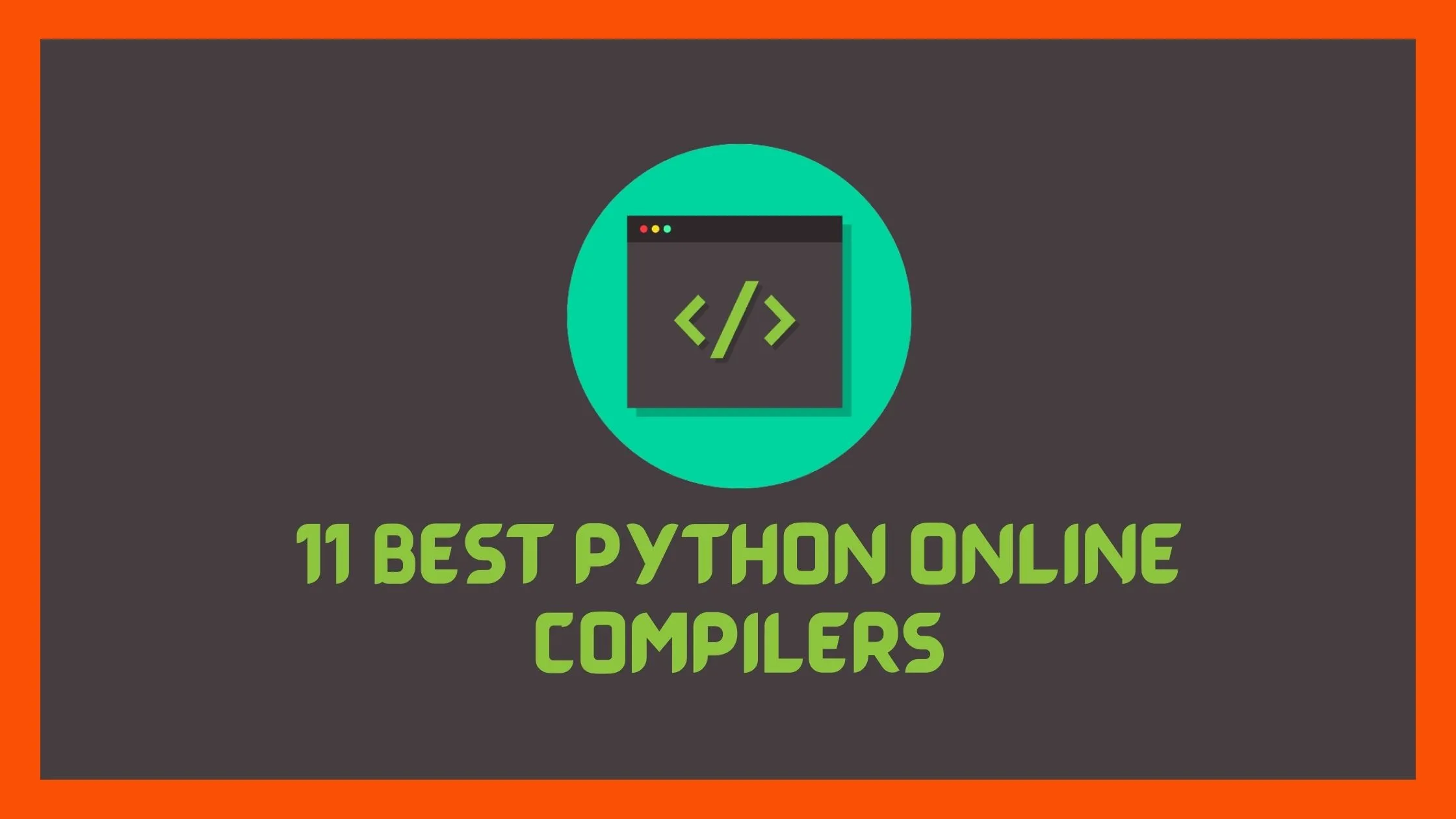Detailed listing and comparisons of popular Python Online Compilers with their features, prices, advantages, and disadvantages to choose the best Python online Compiler:
A compiler is nothing but a special program written in a specific programming language that converts source programs from readable human language (advanced language) to machine-readable language (standard language) without changing the source definition. system.
Python is a translated programming language and has various application areas. It has various integrators for using Python programs. For example, PyCharm, PyDev, Spyder, Atom, Visual Studio Code, Jupyter Notebook, etc.
Python Compilation Process

The Python Compilation process is divided into two steps.
- First, a human-readable source system passes through a composer to produce an object system. In Python, the Python source file extension is “.py” which is translated into “.pyc”.
- In the second step, the object system passes through the translator to produce a machine that is machine-readable and executed.
How to Choose a Python Compiler
Choosing the perfect Python Online Compiler depends on many factors.
For example:
- What are the project requirements?
- What combination does the team use in the company?
- What kind of features should a person need in order to make plans?
An important factor in choosing a compiler is the individual planning level.
Let’s discuss Python Compiler options based on coding level:
- For beginners “Thonny” and “IDLE” are the best and easiest to feel.
- For beginners in the field of data science can use the “Jupyter Notebook”, which will help in the learning process.
- Of the experts “Vim”, “PyCharm”, “Visual Studio Code” are the best. Otherwise it depends on the strengths and interests of the individual.
Most Popular Python Online Compilers
Here is the list of commonly used Python Online Compilers:
- Programiz
- PyDev
- PyCharm
- Sublime Text
- Thonny
- Visual Studio Code
- Jupyter Notebook
- Vim
- Atom
- Spyder
- Eric
Comparison Of The Best Python Online Compilers
| Python Compilers | User Rating | User Satisfaction | Learning Curve Scale | Syntax highlighting | Performance |
|---|---|---|---|---|---|
| Programiz | 4.6/5 | 0.9 | Easy | No | Average |
| PyDev | 4.7/5 | 0.94 | Medium | Yes | Good |
| PyCharm | 4.6/5 | 0.92 | Easy | Yes | Good |
| Sublime Text | 4.5/5 | 0.9 | Easy | Yes | Good |
| Thonny | 4.7/5 | 0.94 | Easy | Yes | Good |
| Visual Studio Code | 4.6/7 | 0.9 | Medium | Yes | Good |
| Jupyter Notebook | 4.5/5 | 0.95 | Medium | Yes | Good |
| Vim | 5/5 | 1 | Hard | Yes | Excellent |
| Atom | 4.5/5 | 0.8 | Easy | Yes | Average |
| Spyder | 4.4/5 | 0.88 | Easy | Yes | Average |
| IDLE | 3.7/5 | 0.74 | Easy | Yes | Average |
| Eric | 5/5 | 1 | Medium | Yes | Good |
| GNU/Emacs | 4.5 | 0.8 | Medium | Yes | Good |
Programiz

Programiz is an application used to integrate Python programs. We can use it online in a web browser or download the app in our local system. Millions of programmers use it to learn Python.
It also includes code for other languages like C, C ++, Java, etc., not just Python. This compiler is completely free and one just needs a good internet connection to get started.
Price: Free
Developed By: Guido van Rossum
Platform Supported: Linux, Microsoft Windows, Mac.
Language Supported: English
Features
- It is very simple and easy to understand.
- It is free and has an open source that does not require a cost to get started.
- Flexible, flexible, and immersed.
- Advanced translated language.
- It has a rich library and a large community to keep the work going to make it very useful for program planners.
Benefits
- It can be used in a web browser, and there is no need to apply.
- Can be used on mobile phones.
Cons
- It takes time while coding.
- With the online version, one cannot do work on larger programs.
Website: Programiz
PyDev
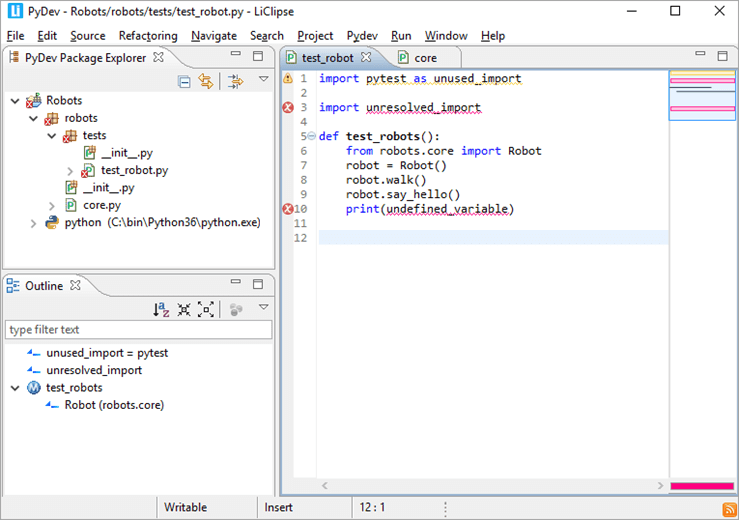
PyDev is an Eclipse IDE and is used in the development of Python, JPython, and IronPython. It is currently Python’s leading source of coding. For the past 8 years, the community has been working on it to make it better for Python users.
PyDev is free and open source, people can download it online and start using it.
Price: Free
Developed By: Appcelerator
Platform Supported: Linux, Microsoft Windows, Mac
Language Supported: English
Features
- It has powerful specifications like redesign, debugging, code analysis, etc.
- Supports remote debugger, Unittest integration, PyLint, etc.
- Enables visual areas, black format, and Mypy.
Benefits
- Enables syntax highlighting, coding, and provides support for various other programming languages.
- Supports Django Framework, Jython, etc.
Cons
- Sometimes PyDev plugins are unstable.
- PyDev performance decreases with the installation of multiple plugins.
Website: PyDev
PyCharm
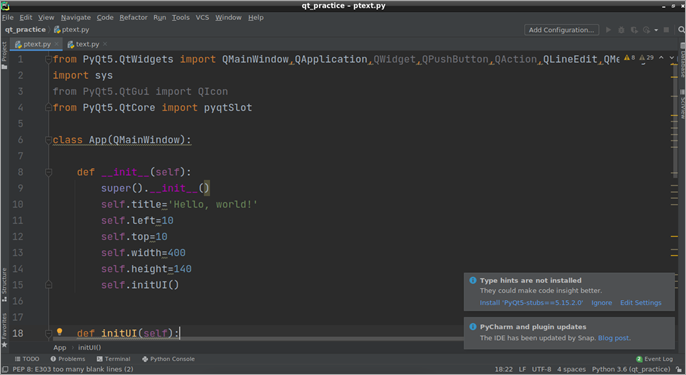
PyCharm is an Integrated Development Environment (IDE) developed by a CZech-based company called “JetBrains”. Nowadays, it is the Python compiler that is widely used by Python developers to write good quality code correctly. Make quick integrations and save developer time.
Price: Freemium
Developed By: Czech Company “JetBrains”
Platform Supported: Linux, Microsoft Windows, Mac
Language Supported: English
Features
- Supports over 1000 plugins.
- We can switch to more files faster.
- Developers can write the plugin on their own.
Benefits
- Easy to use.
- The community is very supportive and ready to help users on the Forum.
- The installation process is very simple.
- Enables the view of all source code with a single click.
Cons
- Not suitable for Python beginners.
- Be slow when working with big data.
Website:PyCharm
Sublime Text
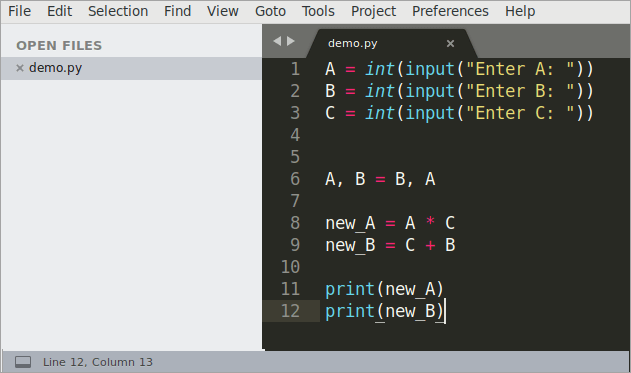
Sublime Text IDE comes in two versions namely free and paid. The paid version contains some interesting features. It has various plugins and is stored under free software licenses. It supports many programming languages, for example, Java, C / C ++, etc. and not just Python.
Sublime Text is much faster compared to other text editors. One can also install other packages such as debugger, encoding, and decoding. We can customize it according to our needs.
Price: Freemium
Developed By: Jon Skinner
Platform Supported: Linux, Microsoft Windows, Mac
Language Supported: English
Features
- We can jump the whistle wherever we want to go, i.e. it has the “Goto Anything” feature.
- Can select multiple Rows and Names.
- Its options can be customized according to project specific needs.
Benefits
- It has a free version. Everyone can use it.
- It has a plugin used to highlight text and is very good for debugging.
- It supports better replacement features compared to others.
- We can do work on many projects at a time without confusion.
- It always raises the correct syntax.
Cons
- Plugins are sometimes complicated.
- It becomes difficult to manage large documents.
- It does not save the document automatically.
Website:Sublime Text
Thonny
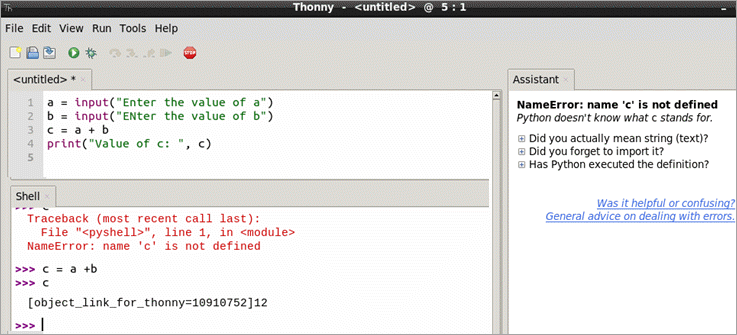
Thonny is a free and open source IDE for Python users. To start this, we need to install it online. It is built with a focus on the needs of beginners.
The default version supports Python 3 version. It is easy to launch due to its simple GUI and comes with various other features like debugging, debugging, code completion, etc.
Price: Free
Developed By: Aivar Annamaa and contributors
Platform Supported: Linux, Microsoft Windows, Mac
Language Supported: English
Features
- It has a separate window for each function phone.
- Debugger is very easy to use. Uses the keys F5, F6, and F7.
- Highlights code coding and represents activity calls.
- Automatically terminates code.
Benefits
- Easy to use as it has a simple GUI.
- For starters, Thonny is the best IDE.
- Through some interpreters, it handles coding issues.
Cons
- One can edit the text at the limit.
- It does not support good template.
- Plugin functions are time consuming.
Website: Thonny
Visual Studio Code
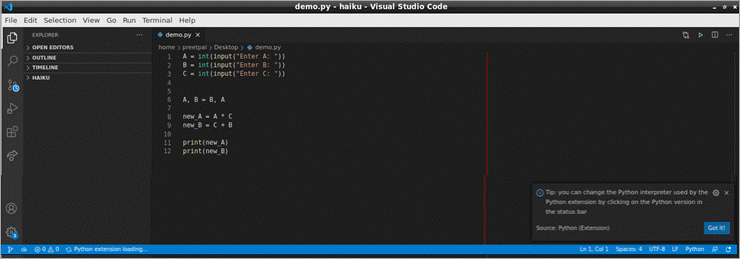
Visual Studio Code is a free and open source IDE developed by Microsoft in 2015. It comes with various extensions. For example, if we want to use this in Python editing language, we need to install some extension of that and the same in other editing languages.
It is becoming popular these days because of its features such as error correction, unit inspection, prompt coding, etc. It is lightweight and full of powerful features.
Price: Free
Developed By: Microsoft
Platform Supported: Linux, Microsoft Windows, Mac
Language Supported: English
Features
- It is lightweight and supports Python coding, debugging, and other functions.
- It comes in two versions namely free and paid. The paid version will contain advanced features.
Benefits
- Allows different editing languages. For example, Python, Java, C / C ++, etc.
- Comes with built-in plugins.
- One can customize according to their needs.
- Completes and receives code very quickly.
Cons
- The interface is not very good and it took a while to get started.
- While writing codes, it just crashes and closes.
Website: Visual Studio Code
Jupyter

Jupyter Notebook is a special IDE that is widely used in data science fields. It follows server configuration and is free and open source. It allows us to convert text to other formats, for example, HTML, PDF, etc.
Price: Free
Developed By: Fernando Pérez, Brian Granger
Platform Supported: Linux, Microsoft Windows, Mac
Language Supported: English
Features
- It has indexes and allows you to embed HTML code from images to videos.
- Allows easy straightforward editing.
- Perfect for beginners in the field of data science.
Benefits
- We can use visual libraries like Seaborn and Matplotlib to display graphs within the same document where the code lies.
- You can output the final function in multiple formats.
Cons
- It is very difficult to analyze large serial functions.
- It does not offer much protection.
- Has no IDE integration, integration, and code modification.
Website:Jupyter Notebook
Vim

Vim is a free text editor with open source and compiler already installed on UNIX and Mac programs but not on Microsoft Windows. It has a number of commands than the visual UI.
Good / professional programmers always use vim as it is very powerful compared to others. By our choice, we can install many plugins to highlight syntax, debugging, etc.
Price: Free and open-source
Developed By: Bram Moolenaar
Platform Supported: Linux, Microsoft Windows, Mac.
Language Supported: English
Features
- Its memory is very low.
- Command central. We can create complex text and tasks with a few commands.
- It is extremely flexible and uses a simple computer file to maintain its configuration.
- There are several plug-ins accessible to Vim. Its functionality will be greatly enhanced using these plug-ins.
- Allows multiple windows. The exploit feature screen will be split into multiple windows.
- In most windows, it jointly supports multiple baths.
- Supports multiple tabs that allow stats for multiple files.
- Supports recording options that allow you to record and play Vim commands in a continuous manner.
Benefits
- It does not require a mouse or trackpad but a keyboard is required.
- Its methods convert you to not only editing, but, navigating around multiple files or files while not removing your hands from keys.
- We do not need to install it as it is already installed on every non-Windows computer and is provided free of charge on Windows.
- There is a special community and there are many learning resources available.
Cons
- Without a doubt, it is a difficult program to be told. It is a completely different concept of thinking compared to different editors.
- It does not have the best options for large IDE programs in the default version.
- It stays within the command, so the user must have a visible connector.
Website:Vim
Atom

Atom is a free and open source IDE that integrates programming languages. Flexible, flexible, and easy to use. It has a large community and a handful of engineers work every day to make it even more attractive and smooth.
It has the same features as Sublime text and can be customized. We can install as many packages as we need. By default, it comes with packages like linter-flake8, python-debugger, etc.
Price: Free
Developed By: GitHub
Platform Supported: Linux, Microsoft Windows, Mac.
Language Supported: English
Features
- Allows third-party packages.
- We can install and manage packages.
- It supports alternative programming languages and not just Python.
Benefits
- Supports Microsoft Windows, UNIX system, and Mac.
- The community is incredibly helpful and ready to answer users’ questions at the forum.
- Comes with a package manager.
- Supports git integration.
Cons
- It requires improvement within performance. Sometimes it does not work explicitly.
- Unable to generate source code directly.
- It starts splitting while connecting to the server.
Website: Atom
Spyder
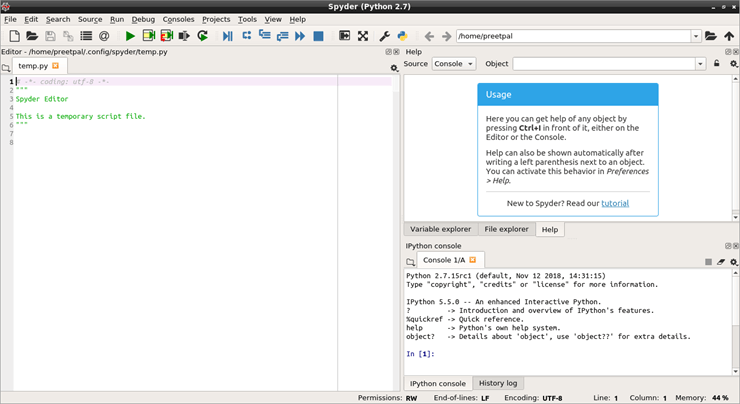
Spyder is a free and open source developer used for integration of Python programs. It is a combination of various Python stacks such as NumPy, pandas, Python, etc., and is released under MIT license.
Supports various interactive data testing tools. Works well with cross-platform with Anaconda on Linux, Microsoft Windows, and Mac. In the GUI, Spyder uses Qt and we can use PyQt or PySide.
Price: Free
Developed By: Pierre Raybaut
Platform Supported: Linux, Microsoft Windows, Mac
Language Supported: English
Features
- Highlights Python syntax and supports multiple Python consoles.
- It has the ability to scroll and edit flexible from Graphical User Interface.
- To do it step by step, the debugger is connected to the IPdb.
- To modify Python code, a runtime profile is attached.
- User command history is intelligently recorded.
Benefits
- It’s free and has open source.
- Supports powerful debugger.
- Provides additional plugins to improve performance.
Cons
- It comes from the old style.
- It does not have the correct structure.
- It is very difficult to find a terminal in this compiler.
Website: Spyder
Eric
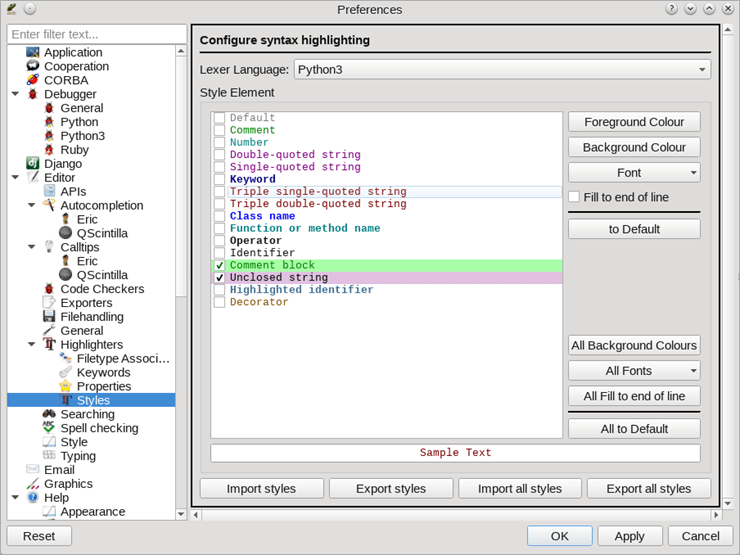
Eric is a Python editor and IDE which is written in Python for Python developers. It comes with the cross platform Qt UI toolkit. It supports various plugins & extensions and is integrated with the Scintilla editor.
Price: Free and open-source
Developed By: .NET Foundation
Platform Supported: Linux, Microsoft Windows, Mac
Language Supported: English
Features
- It offers various features like editors, error highlighting, code folding, etc.
- It supports the Django framework, task management, and code coverage, etc.
Pros
- It supports web browsers like Firefox, chrome, etc.
- It has the capability to correct spelling mistakes to overcome errors.
- It supports screening Qt form tools.
Cons
- GUI is not very supportive.
- The installation process is very hectic.
- Increasing the number of plugins results in a decrease in performance.
Website: Eric
Conclusion
In this tutorial, we discussed Python Online Compilers. The compilers are the best & easy ones to use. They are mostly used by beginners and professional Python developers. Each compiler is made with special specifications.
Topics covered in the Article:
- Introduction to Python Online Compilers
- What is the Python compilation process?
- How to select the Python Compiler?
- Top 11 Python Online Compilers
- Comparison of Python Online Compilers
FAQs
Q1) Do you need a compiler for Python?
Yes, we need compilers not only for Python but for other programming languages as well. Compilers play a crucial role in the programming field and decrease time consumption while writing the code for large projects.
They highlight the coding errors, debug the code that is very helpful in the life of programmers and in the project development.
Q2) What are Python Compilers?
Compilers are used to transfer high-level language into low-level language so that the CPU can understand the source program in their language and start its processing.
In every programming language, we need a compiler for the execution of our programs. Without compilers, the computer cannot understand what’s written and will not process it.
Q3) Why does Python have no compiler?
Python is an interpreted programming language i.e. the software present in the computer reads the Python code and gives the instructions to the machine. That’s why it has no compiler.
But in the case of other programming languages like C++ which is known as a compiled programming language, it gets converted into machine code so that the hardware can easily and directly read the code while executing.
Also Read:
